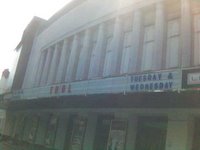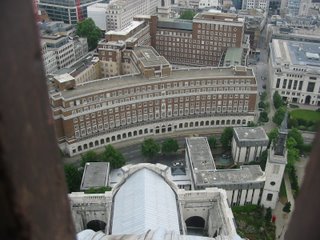The Vietnam war and the University of Wisconsin-Madison
The film focused on one week in 1967, where two very different occurrences began to change American opinion on the Vietnam War. On one hand, an American battalion was ambushed by the Vietcong, resulting in 61 casualties. The focus here seemed to reveal a drastic misjudgement by the commanding officers, and media cover up in portraying the battle as a step toward victory rather than the defeat it was. The other even were the local police attacking students at the University of Wisconsin at Madison, where a sit-in was staged to precent Dow Chemical (the manufacturer of napalm) from making a recruiting visit on campus.
As a student of U Wisconsin in 1989-1992, it was very interesting for me to see the footage of the Commerce Building, and hear interviews with the policemen and students involved. The students were pretty brutally beaten with lack of prior warning, as the police cleared the building. I was struck by the vast differences in opinion and perception between the two groups, which one policeman described very clearly in terms of the very different social backgrounds of the students from the police, who came from farm families and had little contact with the university. The police expressed quite a strong animosity against the student protestors. Sociologist Maurice Zeitlin (a UW staff member present, but now at UCLA) gave some very interesting comments about patriotism and civic cuty in the very different contexts of soldiers drafted into the war and the students involved in protest.
Similarly, the film interviews the Vietcong commanders and some soldiers involved in the same battle. Its very rare to hear all sides of such issues.
In sum, a very focused, but revealing view on American attitudes toward Vietnam.







